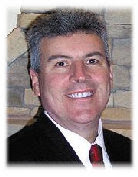A new study of caregivers in the United States finds that although caregiving has a big impact on work and life, most caregivers don't feel financially burdened. Almost one-quarter of households in the United States contain a caregiver, and most of those households provide care for someone who is age 50 or older, according to the new study by The National Alliance for Caregiving and the AARP, which looked at caregivers aged 18 and older who provided unpaid care for another adult aged 18 or older.
According to the study, only 12 percent of caregivers said they felt financially burdened by their caregiving duties. Caregivers with more caregiving responsibilities and those who did not feel they had a choice in becoming a caregiver reported greater financial hardship.
While it generally doesn't create a financial burden, caregiving has a big impact on work and life, the study found. Caregivers provide care an average of 21 hours per week. A majority of caregivers said they were working, either full or part-time, or had worked at some point while caregiving. More than 60 percent of the working caregivers reported having to make adjustments to their work schedule, such as leaving early, arriving late, or taking time off. Not surprisingly, the jobs of caregivers with the most caregiving responsibilities were the most affected; one-third of caregivers who had to provide constant care had quit their job to perform their caregiving duties and 12 percent had retired.
Caregivers also reported they had less time for family or friends, had given up vacations or hobbies, and had less time to exercise. Caregivers said they needed more help finding time for themselves, balancing work and family responsibilities, and managing stress.






No comments:
Post a Comment